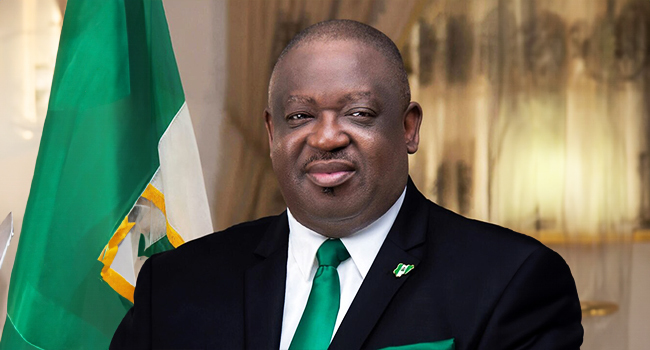Purchasing value of FAAC has decreased despite an increase in FAAC amount -Gov. Mutfwang
Although the monthly federal allocation to state governments has increased, Plateau State Governor Caleb Muftwang claims that the inflationary pressure on the economy and the shaky naira have “significantly reduced” the purchasing power and real value of the money allocated.
“It is true that in terms of amount, it has actually increased, but in terms of purchasing power, in terms of real value, it has decreased very significantly,” Muftwang said on Tuesday.
On Sunday, during a broadcast on the #EndBadGovernance nationwide protests, President Bola Tinubu said some of his reforms, like petrol subsidy removal and the floating of the naira, have “led to our state and local governments receiving the highest allocations ever in our country’s history from the Federation Account.”.
When asked to mention the monthly allocation to his state, the governor and Peoples Democratic Party (PDP) chieftain said he “can’t give an exact figure” because what has come in so far has fluctuated monthly.
The governor said the prices of diesel, cement, iron rods, and other materials used for the construction of critical infrastructure have increased. “So, we shouldn’t just look at the amount; let’s look at the purchasing power of the amount that the state has so far received from the federation account,” he said.
Muftwang stated, “It doesn’t require any complex calculations.” When the last administration took office in 2015, the value of the dollar was approximately N180 to the naira. the naira. You say the value of money has increased today, but we know the naira-dollar exchange rate.
For governance purposes, we continue to be a nation of consumers, relying heavily on imported goods denominated in dollars.
Currently, the Revenue Mobilisation Allocation and Fiscal Commission (RMAFC), which operates under the Presidency, allocates 52.68% of the country’s monthly revenue to the Federal Government, 26.72% to the states, and 20.60% to LGs. The Federation Account Allocation Committee (FAAC) disburses these funds.




